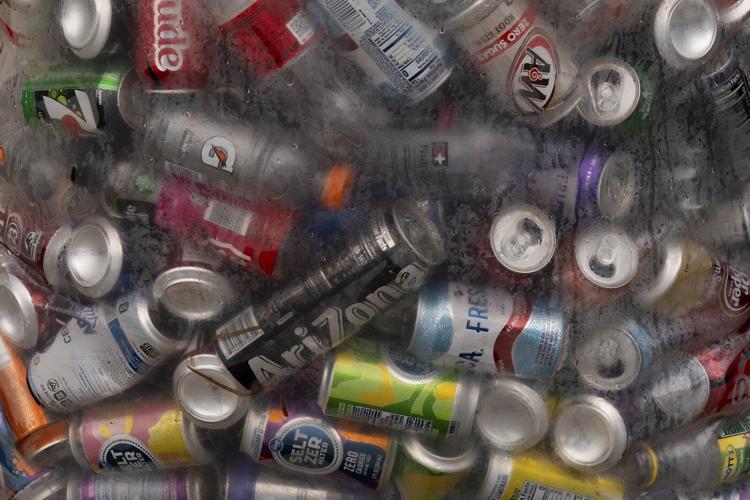Oregon lawmakers approved changes to the state's landmark bottle redemption law on Wednesday, allowing redemption sites that some say have become magnets for drugs and homelessness to refuse returns of empty beverage containers during nighttime hours.
The trailblazing law to reduce littering by incentivizing recycling helped cement the state’s reputation as a leader in the emerging . It has also become a financial security net for many, including those experiencing homelessness.
in response to concerns that the nation’s first “bottle bill,” signed into law in 1971, needed an update to address its interplay with the dual fentanyl addiction and homelessness crises in Oregon.
“This bill is responsive to concerns from retailers both large and small, as well as some of our constituents," said Democratic state Rep. Mark Gamba, who carried the bill on the House floor, adding that it would “help to create a balance in our redemption system while maintaining the program we all seek to protect.”
The bill passed the state House with broad bipartisan support, 48-4. It previously passed the state Senate 28-1.
Democratic state Rep. Pam Marsh, who was among the four representatives to vote against the bill, had previously voiced her opposition during a committee hearing last week.
Marsh said she worries the bill will undermine access to bottle and can redemption sites for people “who need to turn in cans and bottles for immediate return because they actually need those dimes and those quarters to buy dinner, to help pay rent, to take care of basic life needs."
Consumers currently pay a on eligible beverage cans and bottles. They get that deposit back when returning them at stores or redemption centers, which can hand count containers or provide counting machines and drop-off areas. People can sign up for accounts in which their refunds are deposited or choose cash redemptions.
The state’s bottle drop program had over a million account holders last year, according to the Oregon Beverage Recycling Cooperative, which operates the program on behalf of its distributor members.
“From its inception, Oregon’s Bottle Bill has helped protect Oregon’s ocean, beaches, roadsides and special places,” the cooperative said in its 2024 annual report, adding that hundreds of thousands of residents used redemptions “to save for college or disability support and to save on groceries.”
In recent years, however, some residents and store owners, particularly in Portland, have become frustrated with redemptions and what they describe as negative impacts on their neighborhoods and business operations.
Currently, stores must accept container returns when they are open, and owners of all-night convenience stores, particularly in Portland, have expressed concerns about employee safety. The bill passed by lawmakers Wednesday would allow stores to across the state to refuse container returns after 8 p.m.
In Portland, the bill would allow for alternative redemption sites, including possible mobile sites such as trucks that travel to different neighborhoods. Nonprofits would run the alternative sites for people who redeem containers every day, relieving the pressure on retailers, particularly downtown.
Stores in an area with an alternative drop site could limit or refuse hand-counted returns, with convenience stores specifically allowed to stop them at 6 p.m.
The proposal was supported by retailers and associations whose members include “canners” and waste pickers who collect containers for income.
In 2023, roughly 87% of eligible containers were returned for redemption, according to the Oregon Liquor and Cannabis Commission. That was the highest rate in the nation that year, according to the Oregon Beverage Recycling Cooperative.











































